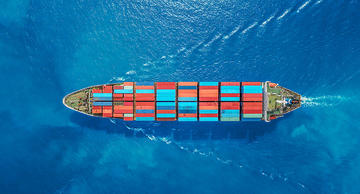The 7 Most Important Trade Agreements for Mexico's Industry

There are various trade agreements between Mexico and other countries in the world, in addition to other international treaties such as the Agreements for Promotion and Reciprocal Protection of Investments (APRPI). The Government of Mexico defines a commercial treaty as "an agreement established by two or more countries under the protection of international law and with the aim of improving their relations in economic and commercial exchange terms." In the case of a Free Trade Agreement (FTA), rules and guidelines regulate the exchange of products and services, eliminating obstacles such as taxes or fees on imports and exports. The aim is to consolidate markets for the national products of each country, creating competitive offers. The APPRIs (Agreements for Promotion and Reciprocal Protection of Investments) are more focused on investments. They are "international treaties designed to promote international investment flows and provide certainty for operations carried out by foreign investors." These treaties are intended to make foreign investments equivalent, as well as provide them with a legal framework of protection. They also provide solution mechanisms if there are problems with investments.
Advantages of Mexico's trade agreements with other countries
The advantages of these agreements go beyond the merely commercial. They eliminate tariff barriers, facilitating trade, and also support the economy of the participating countries by reducing these barriers. The increase in the flow of foreign investment should also be considered. International treaties provide certainty and stability to long-term investors, and that can also create jobs in the export industry. Another important advantage is the advantages for both parties by being able to exchange products. It creates greater diversity and access. The market becomes bigger and preferential, offering an advantage over countries with whom there is no agreement. In this way, the participating countries achieve greater integration into the world economy, with stability accompanying their growth, and even have the possibility of growth accelerating. One of the most important commercial exchanges between countries is technology. Human society is in now an era of digitalization and technological transformation in which these exchanges can achieve a fundamental step forward for the country and for Mexicans. In addition, various industries such as the automotive, agricultural and construction sectors, as well as others, are benefiting in terms of employment and investment.
Free trade agreements and other trade agreements in Mexico
- 1. T-MEC It is the best-known agreement and one of the most important ones for Mexico. Good trade relations between North American countries are crucial for technological and economic growth. As of July 2020, this agreement replaced the North American Free Trade Agreement (NAFTA) that began in 1994. The main modifications to the previous treaty include stricter origin verifications for the textile, chemical, and automotive industries, in addition to a higher labor value for the automotive industry. A chapter on digital commerce was also added. According to this chapter, there will be no customs duties on digital products, and the aim will be to find methods that protect consumers and their privacy, as well as to cooperate on key cybersecurity aspects.
- 2. The FTA EU-MX agreement with the European Union is the second-best known trade agreement for Mexico. It was signed in 2000 and according to the Government of Mexico, is estimated to have reached $75 billion in 2019. In 2016 talks and negotiations began to modernize the agreement, and this process ended in 2020. The update included more opportunities to export agricultural-industrial products, modernization in digital commerce and telecommunications, as well as protection for investments and emblematic products such as coffee and handcrafted articles.
- 3. In the case of FTA between Mexico and the members of the European Free Trade Association (EFTA), which is made up of the Republic of Iceland, the Kingdom of Norway, the Principality of Liechtenstein, and the Swiss Confederation, the FTA came into force in 2001 and it is key because it includes European countries that do not belong to the European Union. This association of nations also includes agreements for agriculture.
- 4. Another relevant trade agreement for Mexico is the Central America FTA, signed between Mexico and Costa Rica, El Salvador, Guatemala, Honduras and Nicaragua. It was signed in San Salvador, El Salvador on November 22, 2011. This treaty did away with other treaties between Mexico and these countries, resulting in a more modern treaty with better conditions that tries to achieve a balance between commercial relations, the expansion of world trade and international cooperation, as well as promoting a more modern, larger and safer market between countries.
- 5. Mexico, Peru, Colombia and Chile constitute the so-called Pacific alliance, which includes thirty-two countries. These four countries account for 38% of the GDP in Latin America and the Caribbean, so a trade agreement between them is very beneficial. The agreement involved in this alliance is not only commercial, however, it is still important for investors in the region. By 2010, this alliance exported about $445 billion.
- 6. One of the largest trade agreements in the world is the Comprehensive and Progressive Treaty of Trans-Pacific Partnership (CPTPP), which was signed by eleven countries of the Pacific basin including: Australia, Brunei, Canada, Chile, Japan, Malaysia, Mexico, New Zealand, Peru, Singapore, and Vietnam. Some other Asian and American countries are hoping to join. The United States withdrew from the treaty in 2017. The importance of this treaty lies not only in the number of countries involved, but also in how it strengthens trade between countries positioned very far away from each other who nevertheless share an ocean. These countries make up 14.9% of the world's trade, as well as 13.5% of global GDP. Mexico has FTAs with several of these countries individually.
- 7. Among the international treaties that exist between Mexico and a single other country, the FTA with Uruguay stands out. Uruguay is the only country that belongs to the Southern Common Market (MERCOSUR) with which Mexico has a trade agreement. MERCOSUR is one of the most important trading blocks in the world and is made up of Argentina, Brazil, Paraguay, Uruguay, Bolivia, and Venezuela (although Venezuela is currently suspended). This commercial relationship between Mexico and Uruguay is strategic for the positioning of Mexico in South America.
The importance of electronic signatures in international treaties
Although Mexican and international trade agreements are still signed using handwritten signatures, it is thanks to them that nowadays electronic signatures can be used for international contract signatures. These types of signatures streamline operations and processes of contracts and agreements in general and are very useful for companies and organizations.
Although the digitization of these processes can be a challenge, there are infrastructures, such as OneSpan, that already provide a strong system to facilitate legal validity and certify electronic signatures in different countries.
Thanks to these treaties, laws that support electronic signatures have been drafted for all types of contracts, eliminating travel and documentation costs. Many also follow the model law of the United Nations Commission for International Trade Law (UNCITRAL), which supports common regulation.
The information on this site is for informational purposes only and does not constitute legal advice. We recommend that you seek independent professional advice. OneSpan does not accept liability for the contents of these materials.


Camilo Méndez is a digital entrepreneur and technology enthusiast with more than 20 years of experience in business consulting and technology projects for large companies in Latin America. Today he is the Vice President of Sales for Latin America at OneSpan. Camilo holds an MBA from the University of California at Berkeley and a Masters in Information Systems Management from Carnegie Mellon University.



![]()
